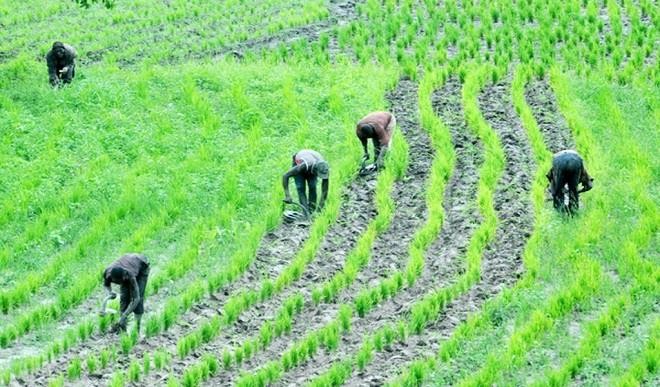W/Bank to support 10,000 farmers in Kaduna – Official
No fewer than 10,000 small holder farmers in Kaduna State are to benefit from the World Bank Agro-Processing, Productivity Enhancement and Livelihood Improvement Support Project (APPEALS). The State Coordinator of the project, Dr Yahya Aminu, disclosed this at a one-day sensitization workshop on Policy Alignment and Collaboration in the implementation of APPEALS, a World Bank […]

FILE PHOTO
No fewer than 10,000 small holder farmers in Kaduna State are to benefit from the World Bank Agro-Processing, Productivity Enhancement and Livelihood Improvement Support Project (APPEALS).
The State Coordinator of the project, Dr Yahya Aminu, disclosed this at a one-day sensitization workshop on Policy Alignment and Collaboration in the implementation of APPEALS, a World Bank project for six selected in states in Nigeria.
The News Agency of Nigeria (NAN) reports that the World Bank is implementing the APPEALS programme through a $200 million grant as support to the benefitting states.
The benefitting states include Kaduna, Lagos, Kano, Cross River, Kogi and Enugu, and are meant to enhance the agro-processing, productivity and livelihood of the citizens.
Aminu explained that the project was in line with the Federal Government Agricultural Promotion Policy focusing on food security, local production, job creation and economic diversification.
He noted that the project would enhance agricultural productivity of small and medium scale farmers and improve value addition along priority value chains, including dairy, ginger and maize in Kaduna state.
“This will be achieved through supporting farmers’ productivity and their linkage to markets.
“It will also facilitate agricultural products and cottage processing, facilitating farmers and small and medium businesses’ clustering and connection to infrastructure network and business services,“ he said.
According to him, the project is targeting 10,000 direct beneficiaries and 50,000 indirect beneficiaries in Kaduna state.
He assured that 35 per cent of the beneficiaries would be women, while five to 10 per cent beneficiaries would be people with disabilities.
